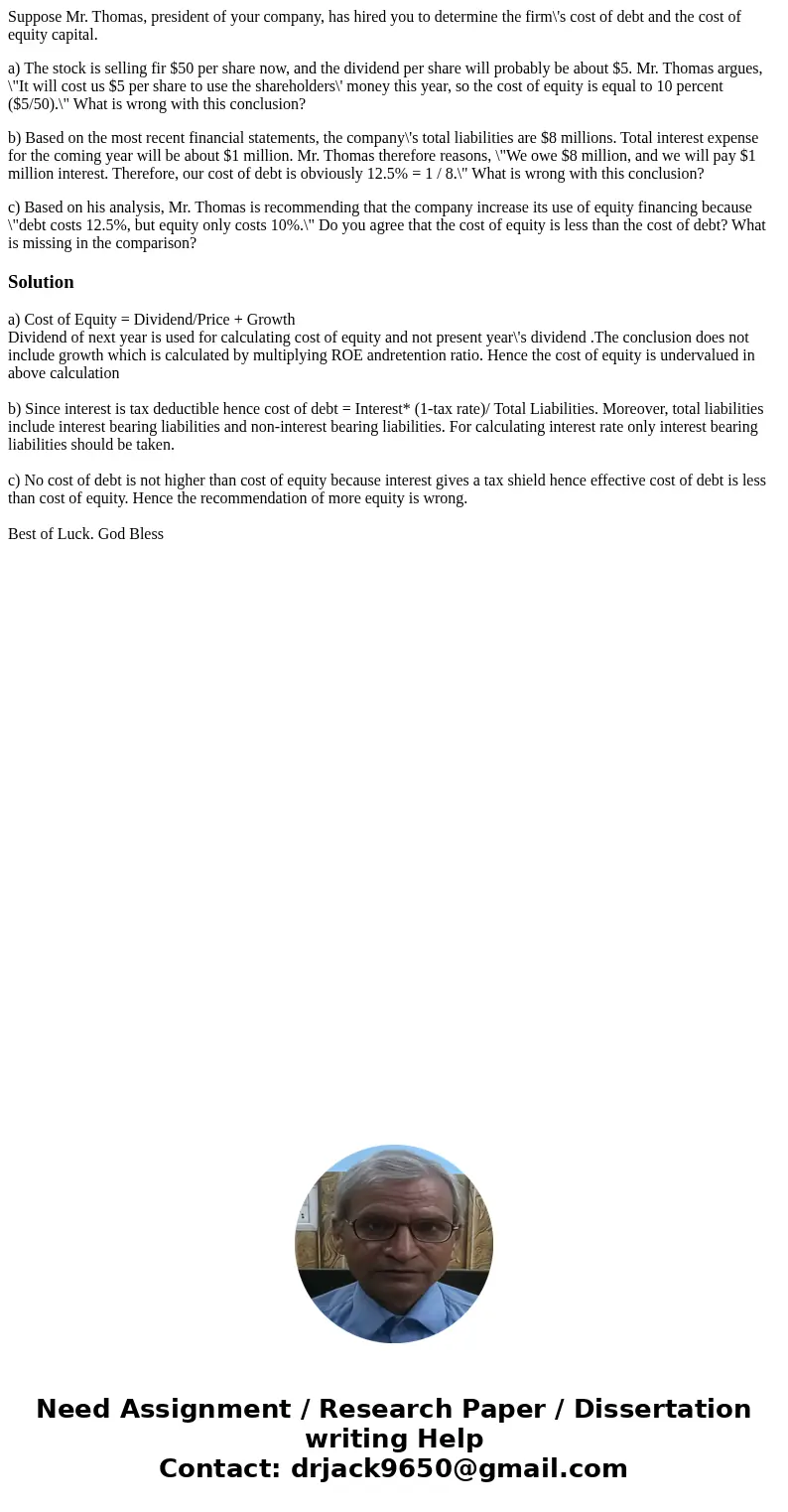Suppose Mr Thomas president of your company has hired you to
Suppose Mr. Thomas, president of your company, has hired you to determine the firm\'s cost of debt and the cost of equity capital.
a) The stock is selling fir $50 per share now, and the dividend per share will probably be about $5. Mr. Thomas argues, \"It will cost us $5 per share to use the shareholders\' money this year, so the cost of equity is equal to 10 percent ($5/50).\" What is wrong with this conclusion?
b) Based on the most recent financial statements, the company\'s total liabilities are $8 millions. Total interest expense for the coming year will be about $1 million. Mr. Thomas therefore reasons, \"We owe $8 million, and we will pay $1 million interest. Therefore, our cost of debt is obviously 12.5% = 1 / 8.\" What is wrong with this conclusion?
c) Based on his analysis, Mr. Thomas is recommending that the company increase its use of equity financing because \"debt costs 12.5%, but equity only costs 10%.\" Do you agree that the cost of equity is less than the cost of debt? What is missing in the comparison?
Solution
a) Cost of Equity = Dividend/Price + Growth
Dividend of next year is used for calculating cost of equity and not present year\'s dividend .The conclusion does not include growth which is calculated by multiplying ROE andretention ratio. Hence the cost of equity is undervalued in above calculation
b) Since interest is tax deductible hence cost of debt = Interest* (1-tax rate)/ Total Liabilities. Moreover, total liabilities include interest bearing liabilities and non-interest bearing liabilities. For calculating interest rate only interest bearing liabilities should be taken.
c) No cost of debt is not higher than cost of equity because interest gives a tax shield hence effective cost of debt is less than cost of equity. Hence the recommendation of more equity is wrong.
Best of Luck. God Bless

 Homework Sourse
Homework Sourse